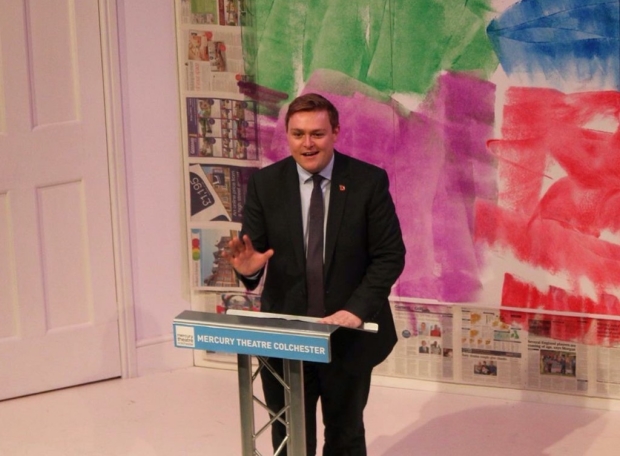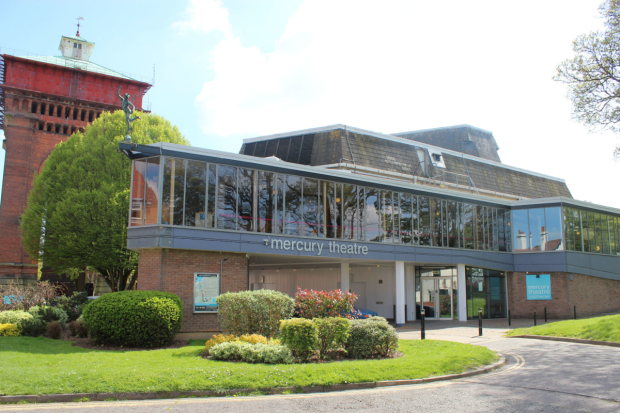Will Quince: 'Regional theatre is the grassroots of our world class theatre scene'
MP for Colchester Will Quince makes the case for the importance of regional theatre

In the Government’s Spending Review in November, it was so encouraging to see the Chancellor increase the cash going to the Arts Council by around £10m each year. Why? Because as the Chancellor acknowledged, cuts to the arts budget are a false economy. Britain has a world class arts and culture scene that generates a huge amount of tourism, growth and economic activity.
In no sector is this more true than our theatre scene. Arts Council research shows Government theatre subsidy helps support over £2.2 billion in private sector activity in the UK. In my own constituency of Colchester, for every £1 of grant aid the Mercury Theatre receives, it generates £3 for the local economy. The total economic impact of the Mercury Theatre on the local area is £3.6m – a not insignificant sum.
Investing in the arts also provides a strong cultural boost in our regional towns and cities. It’s where the careers of some of our best British actors and actresses begin, and where some of our most innovative plays and productions start life.
Actors and actresses as prominent as Sir Ian McKellen, Jonathan Pryce and Shelia Hancock started their careers in our regional theatres. Indeed, Hugh Bonneville, of Downton Abbey fame, took part in six productions at Colchester’s own Mercury Theatre in the late 1980s, in roles as diverse as Petruchio in The Taming of the Shrew to the Panto Dame in Dick Whittington that Christmas!
Regional theatre is where the careers of some of our best British actors and actresses begin
Recent studies also show that 62 per cent of those working in subsidised theatre believed working in the sector to be 'highly important' to a successful career in theatre. Respondents were more likely to say that publicly funded theatre gave greater opportunities for ‘presenting challenging work’, ‘presenting new work’ and ‘providing sufficient time to experiment’ than in big commercial theatre.

The Mercury Theatre itself has seen a 19 per cent upturn in audience numbers in the last year. It’s no coincidence. The quality of performance is getting better and better. As the previous 14-year Director of Colchester's Mercury Theatre, Dee Evans, once said "If you invest in the work and it’s good, people will come".
This success is breeding more investment in the theatre. This year, the Mercury recently underwent a £580,000 refurbishment, with £400,000 provided by the Arts Council. The funding refurbished the studio theatre, increased capacity to over 580, improved disabled access and installed better soundproofing.
Now, the theatre has announced an £8.8m plan to redevelop its buildings and site, improve production facilities and extend its educational and community work. The project has cleared the first hurdle to receive £4million from the Arts Council to fund the project. It’s a big sign that the Arts Council is keen to fund great restoration and innovative projects in our subsidised theatres outside of London.
We should be proud of having such a strong theatre scene in our capital. When regional theatre does well, our whole cultural scene benefits and it’s great to see the Mercury leading the way in this revival. We shouldn’t forget regional theatre is the grassroots of our world class theatre scene.
By Will Quince
—
William James Quince is a British Conservative Party politician. He was elected at the 2015 general election as the Member of Parliament (MP) for Colchester. He made a plea for support of regional theatre in the new year's debates in Westminster Hall on 5 January.













